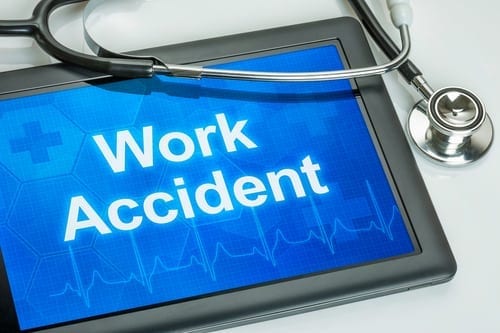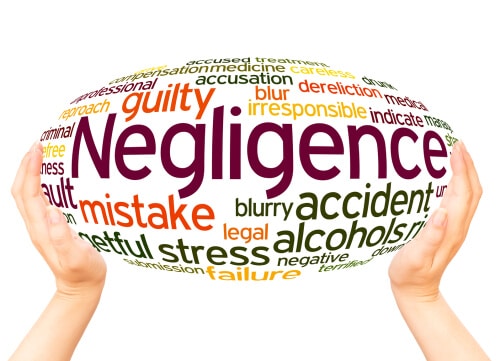Table of contents
About Our Firm & Fees / Process

Kimberly Bishop is the attorney and founder of The Bishop Law Firm. She represents clients with disabilities and those who have sustained injuries in North Carolina. She is also a North Carolina Board-Certified Specialist in Social Security Disability Law.
Read more at Kimberly D. Bishop.
While no attorney can guarantee an outcome, we realize that our survival as a firm (and our client's case) is dependent upon the correct actions being taken at the proper time, despite obstacles, setbacks, and nay-sayers. We offer honest and hard-working legal representation to those in need, and we take pride in it.
Free case reviews are conducted by telephone, whereas consultations are typically held in person. We offer free case reviews, which are conducted over the phone. Additionally, consultations may involve an attorney providing legal advice, whereas a free case review does not include legal advice.
You can call us at 919-615-3095 or start online here. We return calls promptly between 9:00 a.m. and 4:30 p.m. Monday - Friday.
We are located at 8374 Six Forks Road, Suite 101, in North Raleigh, North Carolina. We are located 0.6 miles from Whole Foods on Six Forks Road in the Six Forks Office Center.
There are no upfront costs. We are a contingent fee law firm, which means that we do not receive payment unless our clients win and receive back pay (for disability), compensation (for work-related injuries), or a settlement (for personal injury and car accident injuries).
No fee unless you win means that if you lose your case, The Bishop Law Firm does not make any money from your case (you owe us nothing).
We handle Social Security Disability, Personal Injury, and Workers' Compensation cases. We do not handle any other type of law.
See Legal Services We Offer.
We are located in Raleigh, but we handle cases throughout North Carolina.
To get started, call us for a free case review at 919-615-3095 or begin the process online here.
We update our clients when we have something to share with them or when we require information from them. Depending on the type of case you have or your current stage in the process, you may be contacted more or less frequently. We will keep you informed. We ask that you do the same for us.
Yes, we handle appeals and litigation.
Yes. We order and pay for medical records and case expenses (including experts) on behalf of our clients. If an expert is required in a case, we discuss the cost with our client before proceeding, as this will need to be reimbursed to the firm from the client's settlement.
In Social Security Disability cases, you have 60 days to appeal denials. In Workers' Compensation, you must file a Form 18 within two years of the date of injury. For personal injury claims, you have a three-year statute of limitations. Wrongful Death claims have a two-year statute of limitations.
Unfortunately, we can not answer legal questions for non-clients. Additionally, we cannot provide advice or extend representation to callers who already have an attorney.
Social Security Disability (SSDI / SSI)

We represent clients in claims for Social Security Disability Insurance and Supplemental Security Income before the Social Security Administration. We do not handle claims for short-term, long-term, or federal disability benefits.
Read: Types of Social Security Disability Benefits
In general, you must have worked five out of the last ten years to be eligible for Social Security Disability benefits. You can contact the Social Security Administration to determine your eligibility or sign up for a mySSA account to see your work credits.
Also, watch Who Can Apply for Social Security Disability.
The Five-Step Sequential Evaluation applies to every disability case in every state, including North Carolina:
Step 1 – Are You Working?
Step 2 – Is Your Condition “Severe”?
Step 3 – Is Your Condition on the List of Disabling Conditions?
Step 4 – Can You Do the Work You Did Previously?
Step 5 – Can You Do Any Other Type of Work?
Read more at the SSA Five Step Evaluation.
SSA defines work as "substantial gainful activity" (SGA). SGA is earning more than $1,620 per month (as of 2025). If you are making more than that, you usually cannot be considered disabled. If you are not working or coming close to making $1,620 a month, you proceed to Step 2 of the Sequential Evaluation.
Medical records, doctor opinions, school records, disability determinations from other agencies, your work history, a medication list, statements about your functioning, and third-party statements about your functioning are some of the evidence that may be required in a disability claim.
If Social Security determines you do not have enough work credits, they will not allow you to apply for Social Security Disability Insurance. However, you may still be eligible for Supplemental Security Income. The only way to determine your eligibility is to apply with Social Security.
Read Types of Social Security Disability Benefits.
On average, it can take 3-6 months to get a decision at the initial and reconsideration level from Disability Determination Services. If you are denied at the initial and reconsideration levels, you will need to request a hearing before an SSA Administrative Law Judge. Currently, it takes 3-6 months to schedule a hearing, depending on your location.
You must appeal within sixty days of the denial date. The appeal is called the reconsideration.
Your attorney should prepare you for the hearing. At the hearing, your work history, impairments, and limitations will be discussed in detail.
What qualifies as a disability for Social Security's purposes varies based on severity. Severity is key, not the name of your disease. Any condition, if severe enough (minus substance abuse), can be a disability.
See Social Security Disability Conditions
SSDI is payable up to one year before your application date if you are found disabled back that far. There is also a five-month waiting period before SSDI benefits can begin. SSI is only payable after your application date (if you are found disabled back that far).
Yes. If your SSDI monthly benefits are low enough, you can receive both SSDI and SSI, but you will only receive up to the amount allowable for SSI, which is $967.00 per month as of 2025.
It depends. SSA's rules (on paper) state that a person can earn up to $1,620.00 per month and still receive disability benefits. In reality, if you are grossing close to this number, it is unlikely that you will be found disabled, as that creates an inference that you can make more money. In addition, the type of work you are doing part-time is also a factor.
Attorney fees are withheld by the Social Security Administration from the client's back pay in accordance with the law.
North Carolina Workers’ Compensation

Employees (not independent contractors) who work for employers who employ three or more employees who are injured at work are eligible for Workers' Compensation.
Also read: Who is eligible for NC Workers' Compensation?
Injuries and conditions that arise out of the performance of your work duties are covered.
Report your injury to your supervisor and seek medical treatment where your employer directs you.
We advise our clients to email, text, or fax their report of injuries to their employer within thirty days of the injury, preferably as soon as possible after the injury.
No. An employer can not fire you for filing a Workers' Compensation claim, BUT North Carolina is an at-will state, which means that they can fire you for any reason or no reason.
Wage loss benefits, medical treatment, temporary disability, and permanent disability.
Also see What does NC Workers' Compensation pay for?
A physician must generally write you out of work; then, seven days must pass before wage loss begins. Wage loss is .66666 or 2/3 of your average weekly wage. There are several ways to calculate AWW, but the method used should be the method most favorable to you.
Read NC Weekly Workers' Compensation Benefits
If the Workers' Compensation carrier denies your claim, you will have to seek medical treatment on your own. The employer will not direct your medical care, which can be a positive in certain circumstances.
Also read Denied NC Workers' Compensation Claims.
In North Carolina, if the Workers' Compensation insurance accepts your claim, you must go to their doctors. If they deny your claim, you can be treated by any doctor, but you will have to later win your case to be reimbursed for your medical expenses.
Mediation involves you, your attorney, the workers' compensation insurance attorney, and the adjuster discussing the value of your claim. If you file for a hearing and are represented, a medication is required.
Read Mediation in NC Workers' Comp.
No. Pain and suffering are not available in North Carolina Workers' Compensation claims.
Before giving a recorded statement, you should discuss your case with a Workers' Compensation attorney.
If your condition improves, you should return to work. If your condition does not improve but the workers' compensation doctor returns you to work, you should contact a Workers' Compensation attorney.
The North Carolina Industrial Commission governs NC Workers' compensation claims.
No, not generally.
North Carolina Personal Injury / Auto Accidents

Anyone who is injured due to the negligence of another through no fault of their own can potentially have a personal injury case in North Carolina. Negligence is a failure to do what a reasonable person would under the same circumstances.
Read Do I have an NC Personal Injury Case?
Medical expenses, lost wages, pain & suffering, and punitive damages in certain circumstances. For severe injuries, future damages are also included.
In North Carolina, personal injury claims have a statute of limitations of three years.
If the at-fault party does not have auto insurance, you can use your own Uninsured Motorist Coverage. For other types of accidents, potential coverage and assets must be researched thoroughly. If the at-fault party has no insurance or assets, a victim may be unable to recover if they do not have their own coverage.
If you are willing to accept the insurance company's offer, you will settle out of court; if not, you will have to proceed to trial.
Read Settle or Go to Trial?
A common method involves multiplying medical expenses and lost wages by a number between 1 and 5 to account for pain and suffering, but this is only one method of calculating damages. Greater injuries correlate with higher-value personal injury cases.
Read: How much will my car accident settlement be?
North Carolina is a contributory negligence state. Comparative negligence, also known as shared fault, does not apply in North Carolina.
Read about Contributory Negligence.
Avoid arguing with the at-fault party after an accident. Seek immediate medical treatment if you are injured. Do not post on social media. Avoid discussing your case with an insurance adjuster until you have sought legal representation. Do not tell the insurance adjuster that you need money fast or are desperate for cash. Rushing the adjuster will mean less money for you.
Medical treatment is essential to your personal injury case. Medical evidence is the only way to prove your injuries from the accident and how those injuries have been detrimental to your life.
You should consult a doctor who specializes in treating individuals with your condition. For example, an orthopaedist treats broken bones and a neurologist treats nerve damage.
Before speaking with an insurance company, you should seek legal counsel.
For severe impairments with long-lasting implications, future medical expenses, wage loss, and pain & suffering should be factored into your settlement. If your future losses are not accounted for when you settle, you are essentially paying twice for someone else's negligence.
Client Responsibilities & Expectations

Communicate with your attorney and do what is asked of you. We will do the same.
Our firm advises clients to be 100% honest about their symptoms and limitations. If you lie, it hurts both of us.
Yes. Anything can be misconstrued, so avoiding social media is the smart move.
Yes. We do not share our clients' information unless we are attempting to obtain relevant evidence from treatment sources or are required to do so by law. We will also not discuss your case with your relatives or friends unless you provide us with written approval to do so.
Please let us know as soon as possible if your situation changes. Please notify us immediately of any changes to your phone number.
If several potential clients are involved in the same accident, they are informed about the limited resources available and how being represented by the same attorney can impact their recovery.
You can terminate representation with any attorney at any time. If you choose to discontinue our services, you must do so in writing. We will then forward your file to you or to any attorney of your choice. We will not waive our attorney's fee.

